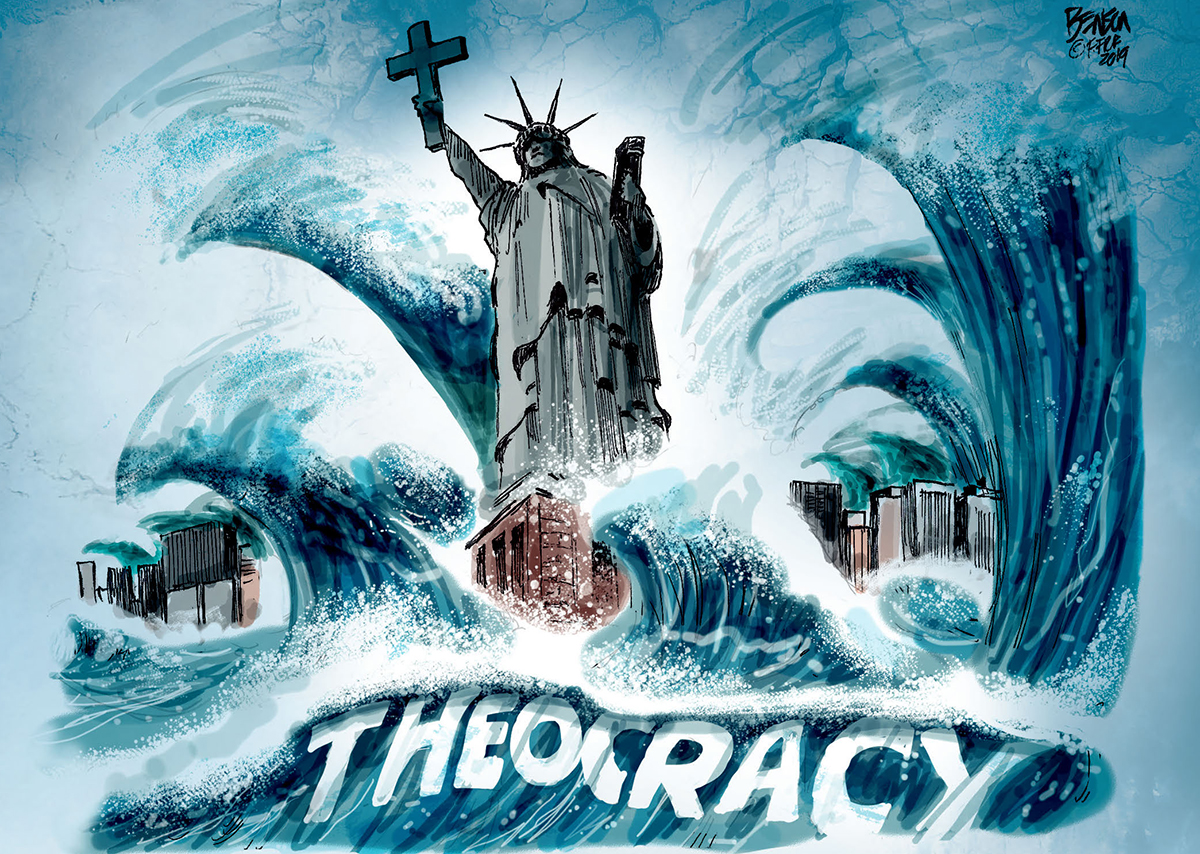
More than 1,000.
That’s how many bills the Freedom From Religion Foundation is now tracking across the United States — and every one of them impacts the fight to keep religion out of our federal and state governmental policies. Less than 50 days into the new year, FFRF has 1,006 bills on our radar.
A large number of these bills — more than 45 percent — are follow-ups to the theocratic Dobbs decision that overturned Roe v. Wade, either seizing the opportunity provided by the Supreme Court to expand religious control over reproductive rights, or else sometimes engaging in desperate attempts to safeguard abortion access that so many had taken for granted. The strategy from anti-choice lawmakers seems to be to push so many bills that they become hard to keep track of. FFRF is proud that it is even then able to keep tabs on such legislation and stand up for the vital separation of religious dogma from government. In fact, today’s New York Times has a page-one story pointing out there are more than 300 pieces of legislation in 40 states on abortion, with a majority seeking to restrict access, and some to punish providers.
In addition to banned or endangered abortion access, FFRF is cognizant that Justice Clarence Thomas signaled the Supreme Court’s likely next targets: contraception and same-sex marriage. States should pass safeguards for both without delay.
LGBTQ rights are another extremely high-volume issue in front of state legislatures. Focusing particularly on making life miserable for trans children and their families, lawmakers have advanced bans on gender-affirming health care, bans on drag shows broad enough to include trans performers not dressed in drag, and myriad bills aimed at stigmatizing children in public schools. Some bills copy Florida’s infamous “Don’t Say Gay” law, under the guise of protecting parental rights, while others encourage anti-LGBTQ discrimination among religious student groups, require teachers to misgender students and “out” trans children to their parents, and more.
Also focusing on public schools are bills allowing the teaching of “intelligent design” (creationism by another name), designating time for daily prayer, requiring placement of “In God We Trust” in every public school classroom and library, and injecting historically dubious bible classes into public school curricula. Religious zealots know that they must indoctrinate children while they’re still young, which is the transparent and unconstitutional motivation behind all of these bills.
But the most immediate religiously based threat to public schools is an ongoing attempt to privatize education, funneling taxpayer dollars that should go to public schools into the bank accounts of private religious schools and scholarship organizations. Iowa and Utah have already enacted legislation expanding their voucher programs to be statewide, or making them “universal,” meaning even billionaires who already send their children to private religious schools can rely on taxpayers to pay for tuition. Lawmakers in many other states have introduced similar legislation. The lie of “school choice” has effectively masked this assault on secular education for all Americans, and it is crucial now more than ever that we work together to educate the public about this rapidly expanding danger.
And these are just some of the major issue areas seen by FFRF’s policy team. There are many other threats, including state Religious Freedom Restoration Acts, attempts to place “In God We Trust” on state seals and state buildings, state constitutional amendments, plus some good legislation, such as medical aid-in-dying bills.
“FFRF is committed to monitoring and taking action on these crucial issues, offering expert testimony and mobilizing our 40,000 members to contact their lawmakers and stand up for secularism,” says FFRF Senior Policy Counsel Ryan Jayne. FFRF’s legislative team is sending out daily alerts to its membership about state/church legislation and connecting them to legislators. It will soon be announcing the creation of a lobbying arm: the FFRF Action Fund.
While nonreligious Americans now account for a dominant force of the electorate, at the same time a shocking number of Americans believe the United States should be a Christian theocracy. Legislators must hear from well-informed constituents who want their government to serve all Americans, and stand up for true religious liberty, by keeping our laws secular and evidence-based.

